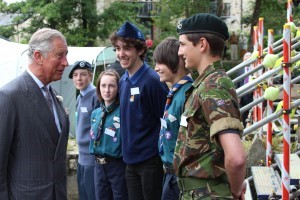Get your kids involved
Parents zone
Preparing for emergencies is something the whole family can do together and that’s not just the adults! During emergency situations children can feel stressed and anxious. It’s helpful to introduce the idea of being prepared early to children. Talk to them about likely things that could happen and what to do if they occur - just like teaching your child to cross the road, resilience is best introduced early and reinforced regularly. By doing this, they will feel empowered and safer with the knowledge of what to do when an emergency happens.
For example:
- Work together to build an Emergency Grab Bag
- Create a Household Emergency Plan, including a communications plan
- Learn how to help your children stay safe online and be cyber aware - do you need help to be a switched on parent?
- Hold fire drills in your house
Resources
For younger kids:
- Activity book from Humber (3 MB)
Join the colourful characters designed to get children involved in thinking how they can be prepared for and respond to emergencies, help them build their confidence and to become more responsible individuals. The booklet raises awareness of emergencies, how they can help themselves, and plan in advance.
- Welephant Club
Wele and his friends have tons for your kids to do... things like a game where they can drive a fire engine to an emergency, a quiz where they have to spot the fire dangers in the home, and colouring in – it’s just jam-packed with fun!
- Sesame Street Emergency Preparation
Help children remember important information, and create a family emergency kit and plan. These steps will go a long way in keeping children safe and secure.
For primary schoolers:
- Video: How to prepare for an emergency
Video by East Riding of Yorkshire Council
- Safe and Sound
Supporting communities to make informed and positive lifestyle choices, improving their health, safety and wellbeing.
- What if?
Essex Civil Protection and Emergency Mangement have a website full of preparatory games and resources to ensure your children are prepared.
Responding and Recovering together
Planning for an emergency is one thing, but what is the best way to support your child during or after a disaster?
- Encourage dialogue
Listen to your kids and ask them about their feelings and comfort them.
- Answer questions
Give the amount of information you feel your child needs.
- Be calm and reassuring
Discuss plans for safety, allow children to contribute to the family’s recovery plan.
- Turn the news off in front of the kids
News coverage of emergencies can create confusion and anxiety. Repeated images may lead younger kids to believe the event is reoccurring. If your children do watch the news, be with them to talk and answer any questions they may have.
- Support
Ensure your child has various support networks such as family, friends or community organisations to talk to.
While responders will provide signposting to specialist services if necessary, information for children and parents is always available:
Working with schools and kid’s clubs
Do you work or volunteer with groups of children in schools or after-school groups? Resources are available for these groups to work together on resilience issues:
The Duke of Cornwall Award
 The Duke of Cornwall Community Safety Award is open to all young people aged between 6 and 18 within uniformed youth organisations such as Beavers, Scouts, Girl Guides and military and 999 services cadets.
The Duke of Cornwall Community Safety Award is open to all young people aged between 6 and 18 within uniformed youth organisations such as Beavers, Scouts, Girl Guides and military and 999 services cadets.
It is run as a three-tier system with awards earned at various ages. The different age groups accommodate the levels that currently exist within youth organisations. The scheme is therefore attractive to all ages and provides encouragement by awarding certificates at various levels.
The Duke of Cornwall Community Safety Award was launched in response to significant flooding in Cornwall in recent years. In 2010 HRH Prince Charles visited the village of Lostwithiel to see first-hand the devastating aftermath of flooding which left homes and businesses ruined.
He questioned why youth organisations were not effectively engaged in the recovery effort, as is often the case in other countries during major community emergencies.
The Duke of Cornwall Community Safety Award was developed to give young people in the UK the first opportunity to learn what to do in an emergency situation such as severe weather, a pandemic or long-term power cut. As well as teaching them to protect themselves, the process makes them think about how to prepare their families and vulnerable people in their local communities.
Group leaders
Each award has a list of suggested activities for young people to undertake at home or in their group. They are asked to complete a certain number of tasks in each category to gain the award. They can move through levels in a supportive and safe environment as they get older.
For more information: Duke of Cornwall Safety Award Handbook duke-of-cornwall-community-safety-award-handbook-2019-1